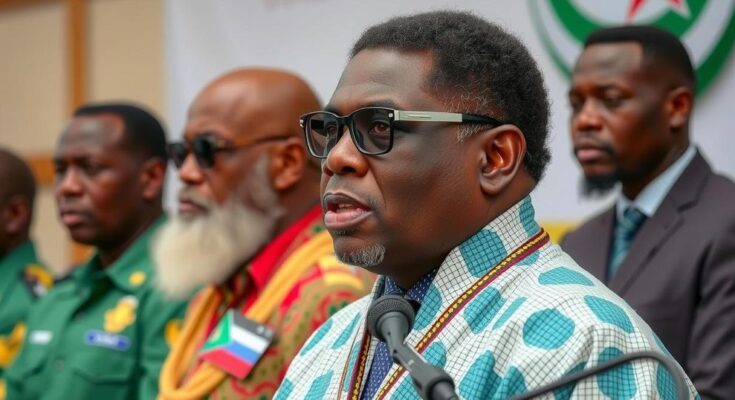South Sudan is set to hold delayed elections in December 2026 after previously postponing them due to the need for census, constitution drafting, and party registration. Key officials stress the importance of political will and funding for successful elections, amid concerns about potential violence and public skepticism about the feasibility of the electoral process.
South Sudan is scheduled to conduct its long-postponed general elections in December 2026. Initially set for this month, the elections were delayed due to the need for a complete national census, the drafting of a permanent constitution, and the registration of political parties. This postponement, initially communicated in June, has resulted in the extension of the current transitional government led by President Salva Kiir.
Abendengo Akok, the head of the National Electoral Commission in South Sudan, emphasized the importance of political will for the successful execution of the elections. He cited the 2018 peace agreement that ended the civil war as a significant milestone and commented, “If we are serious, two years are enough for us to run the election,” stressing the necessity of adequate funding to facilitate a successful vote.
Nicholas Haysom, the head of the United Nations Mission in South Sudan, expressed concerns regarding the potential for violence if elections are mismanaged. He underscored that well-prepared elections, supported by trust-building initiatives, could transform a potentially divisive process into one that fosters national unity. Haysom remarked that participation in the voting process would enhance the citizens’ recognition of their collective responsibility in determining the future of South Sudan.
South Sudan attained independence from Sudan in 2011 and was initially expected to hold its first election in 2015. However, the onset of civil unrest in 2013 disrupted these plans, leading to a power struggle between President Kiir and his former vice president, Riek Machar. The comprehensive peace agreement signed in 2018 was intended to culminate in elections this year, but the two leaders opted to extend the timeline to 2026.
Wani Yusuf, who was 14 years old during the referendum for secession from Sudan, anticipates casting his vote as a young adult. He expressed a desire to make an informed decision in selecting South Sudan’s inaugural democratically elected government, though he voiced skepticism over the likelihood of the elections occurring in 2026. “When you look at the period that we spend postponing the election,” he noted, “it still tells you that that if they cannot conduct election in that time up to now, then there is also high possibility that election might not take place within those two years’ time.”
In addition to financial limitations, Gabriel Deng, deputy chair of the electoral commission, indicated that the commission has yet to conduct a census and establish voting guidelines. He stated that these necessary preparatory tasks, which could span up to 17 months, have not commenced due to budgetary constraints.
The context surrounding the upcoming elections in South Sudan is rooted in a tumultuous political landscape marked by civil conflict and ongoing governance challenges. Since gaining independence in 2011, South Sudan has struggled with political instability, particularly highlighted by the civil war that began in 2013. The nation was originally slated to conduct its first elections in 2015, but the outbreak of conflict led to significant delays. A peace agreement in 2018 offered a pathway to elections, yet various logistical and political issues have persisted, culminating in multiple postponements and an extended mandate for the transitional government. Issues such as the need for a national census, a permanent constitution, and the registration of political parties remain critical to the successful implementation of the electoral process.
In conclusion, as South Sudan prepares for its long-overdue elections scheduled for December 2026, the efficacy of the electoral process hinges on political commitment and adequate funding. Key figures, including Akok and Haysom, underscore the essential nature of preparedness to avert potential violence and promote stability. However, skepticism persists among citizens regarding the feasibility of the elections, given the history of delays and ongoing logistical hurdles. The future of South Sudan’s democratic aspirations continues to depend on overcoming significant structural challenges in the lead-up to the elections.
Original Source: www.voanews.com




